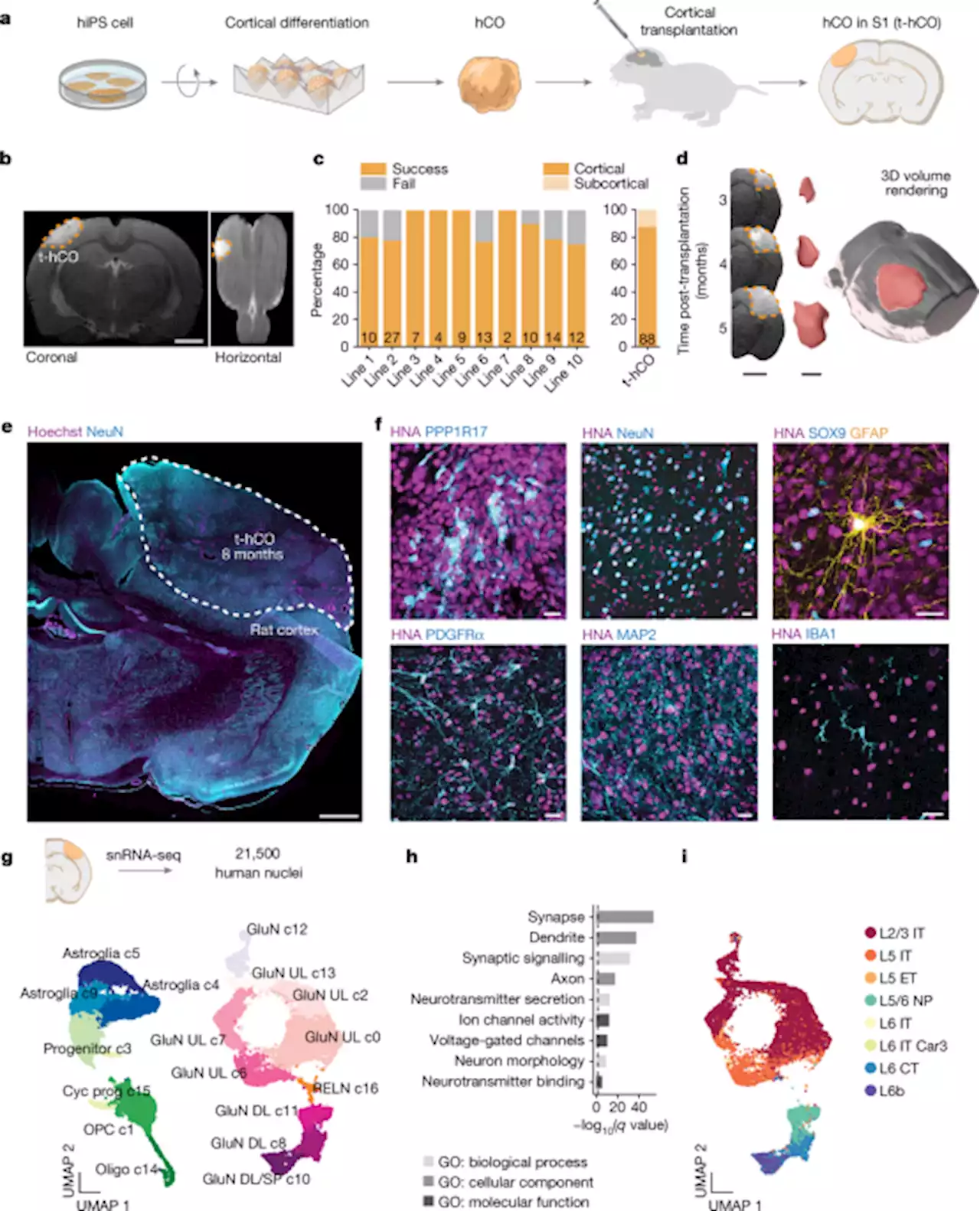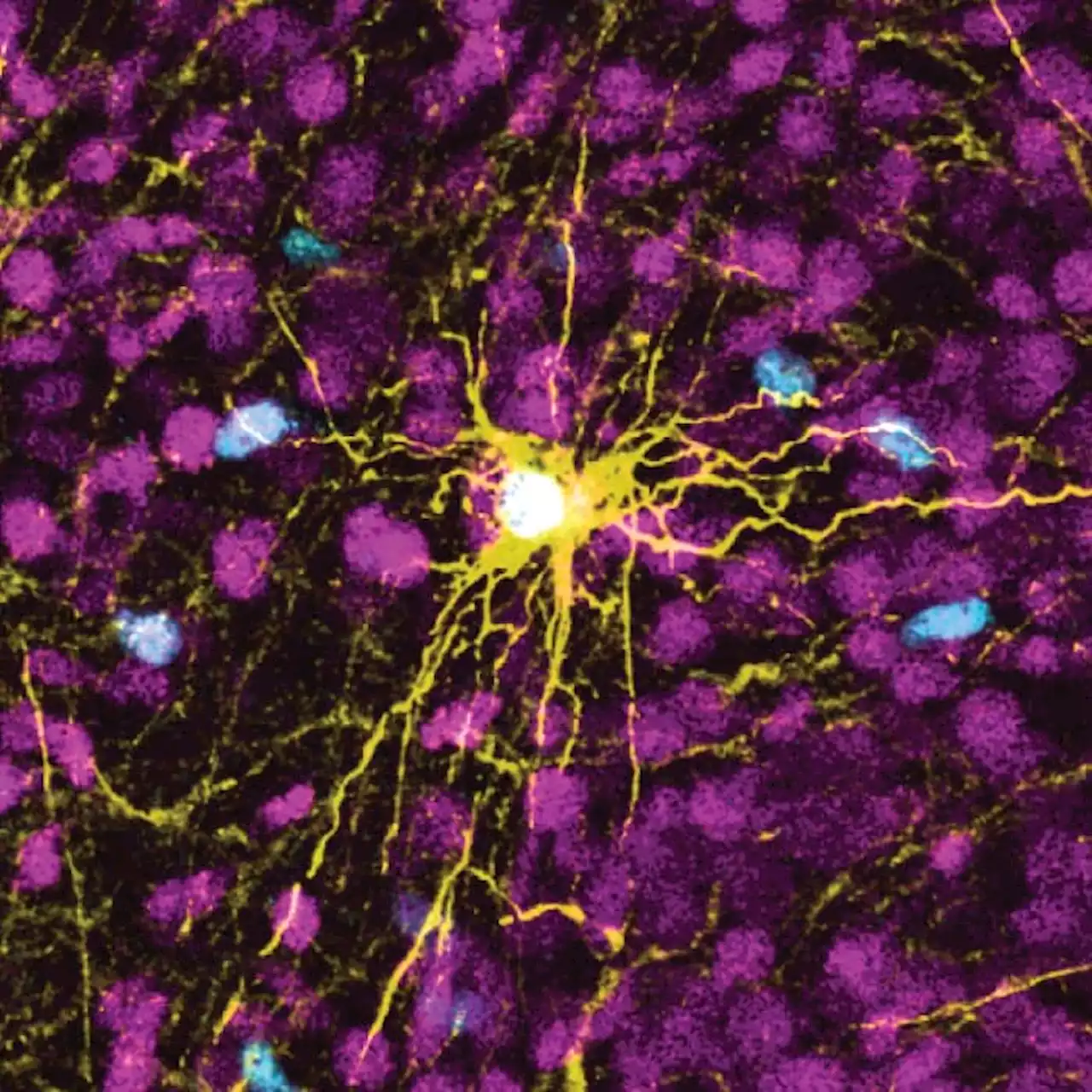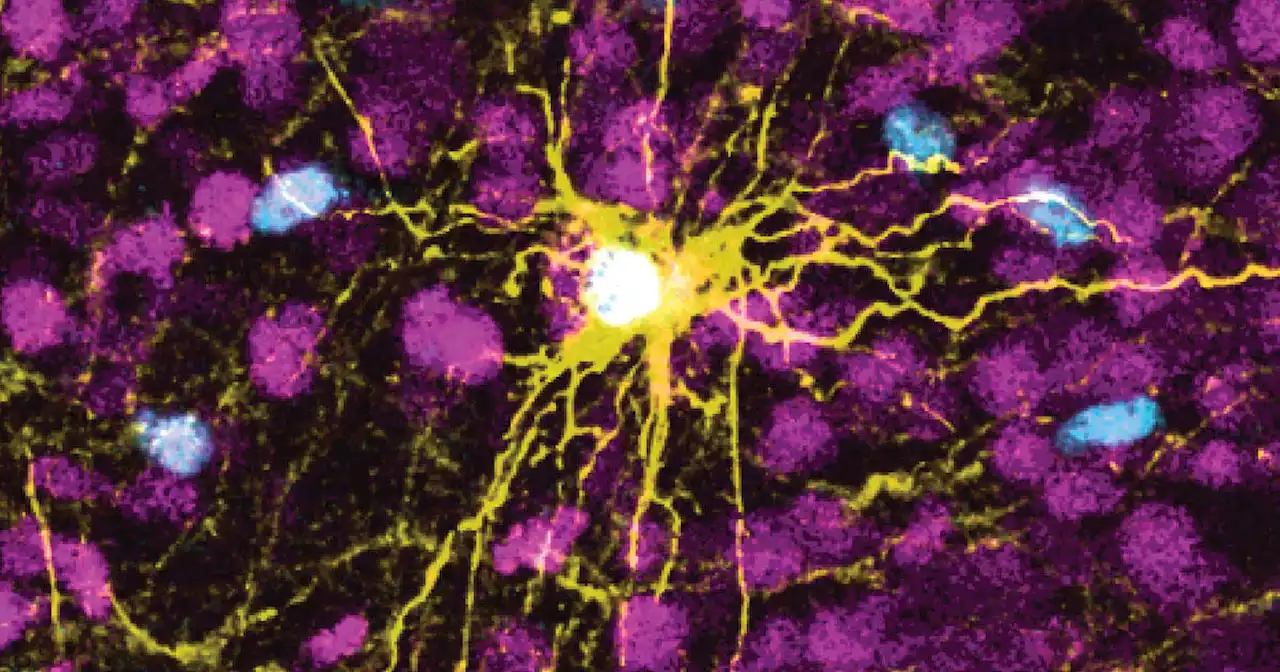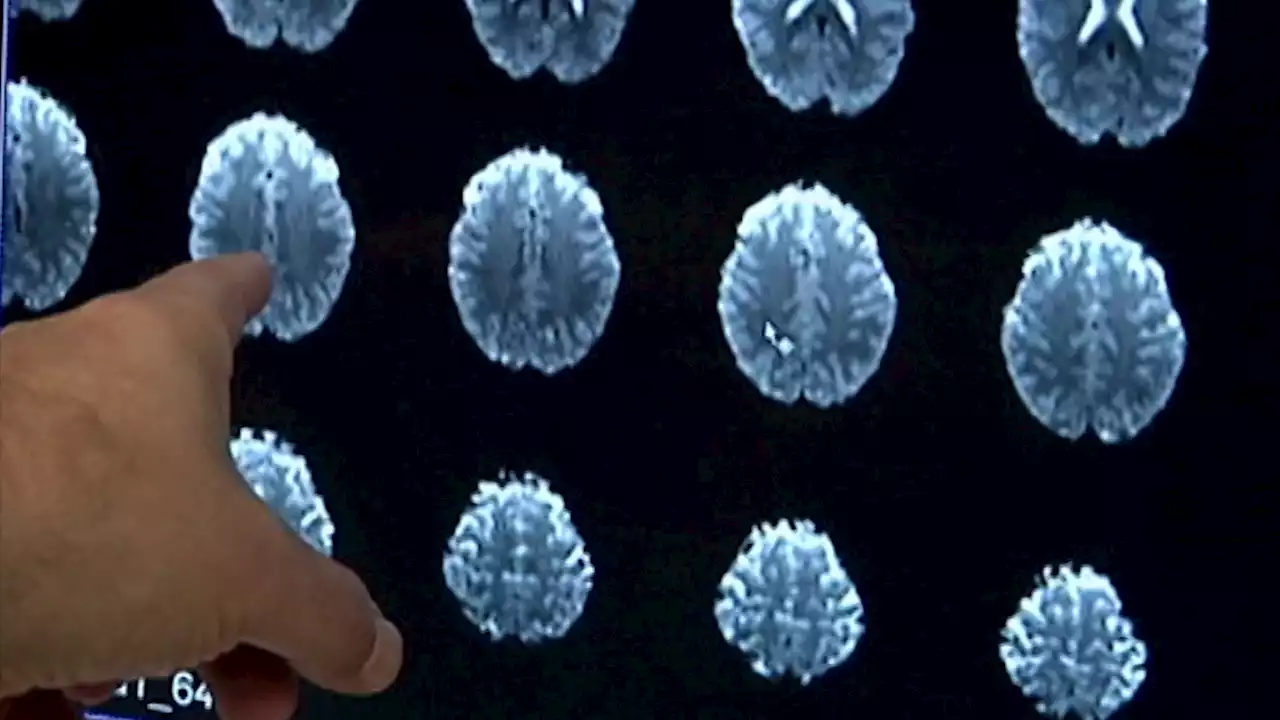Researchers were able to confirm that sensations from the rat's whiskers were being processed by the human brain cells. They also engineered cells that were sensitive to a colored light, then taught the rat to associate the light with a reward.
He says the first step was to create the brain tissue using what are known as pluripotent stem cells. They're derived from skin samples, and can be coaxed into developing into almost any kind of cell in the body. But instead of just working in a dish, Pasca's team transplanted the cells onto the brain of a living rat. They soon watched as blood vessels connected, and the human neurons began to grow.
"And we've discovered that it starts to connect with the, with the some of the circuitry of the rat. And so for instance, it receives input from the thalamus, which is a very important structure in the middle of the brain, which relays information from sensors. So because we put it in the region of the brain that processes information from whiskers," explains prof. Pasca.
Researchers were able to confirm that sensations from the rat's whiskers were being processed by the human brain cells. Later they engineered cells that were sensitive to a colored light, then taught the rat to associate the light with a reward. Behavior, again being processed through the human brain cells.
Malaysia Latest News, Malaysia Headlines
Similar News:You can also read news stories similar to this one that we have collected from other news sources.
 Maturation and circuit integration of transplanted human cortical organoids - NatureHuman cortical organoids transplanted into the brain of newborn rats develop functional connectivity with host sensory circuits and shed light on neuronal dysfunction in Timothy syndrome. NBThighlight
Maturation and circuit integration of transplanted human cortical organoids - NatureHuman cortical organoids transplanted into the brain of newborn rats develop functional connectivity with host sensory circuits and shed light on neuronal dysfunction in Timothy syndrome. NBThighlight
Read more »
 Scientists grow human brain cells in rats to study diseasesScientists at Stanford University have transplanted human brain cells into the brains of baby rats, where they grew and formed connections.
Scientists grow human brain cells in rats to study diseasesScientists at Stanford University have transplanted human brain cells into the brains of baby rats, where they grew and formed connections.
Read more »
 Scientists grow human brain cells in rats to study diseasesScientists at Stanford University have transplanted human brain cells into the brains of baby rats, where they grew and formed connections.
Scientists grow human brain cells in rats to study diseasesScientists at Stanford University have transplanted human brain cells into the brains of baby rats, where they grew and formed connections.
Read more »
 Scientists transplant human brain cells into the brains of baby ratsScientists have transplanted human brain cells into the brains of baby rats, where the cells grew and formed connections, according to new research.
Scientists transplant human brain cells into the brains of baby ratsScientists have transplanted human brain cells into the brains of baby rats, where the cells grew and formed connections, according to new research.
Read more »
